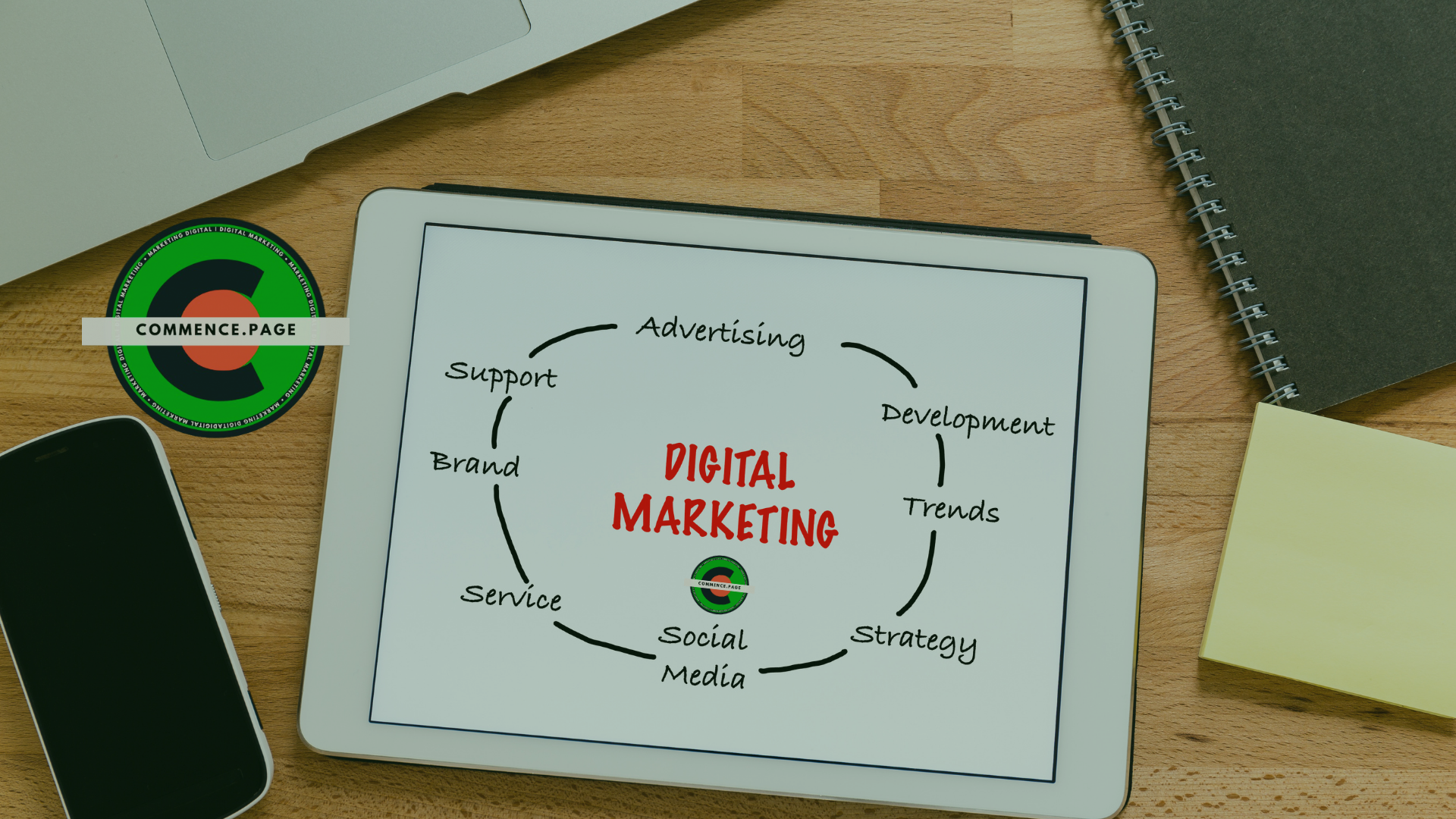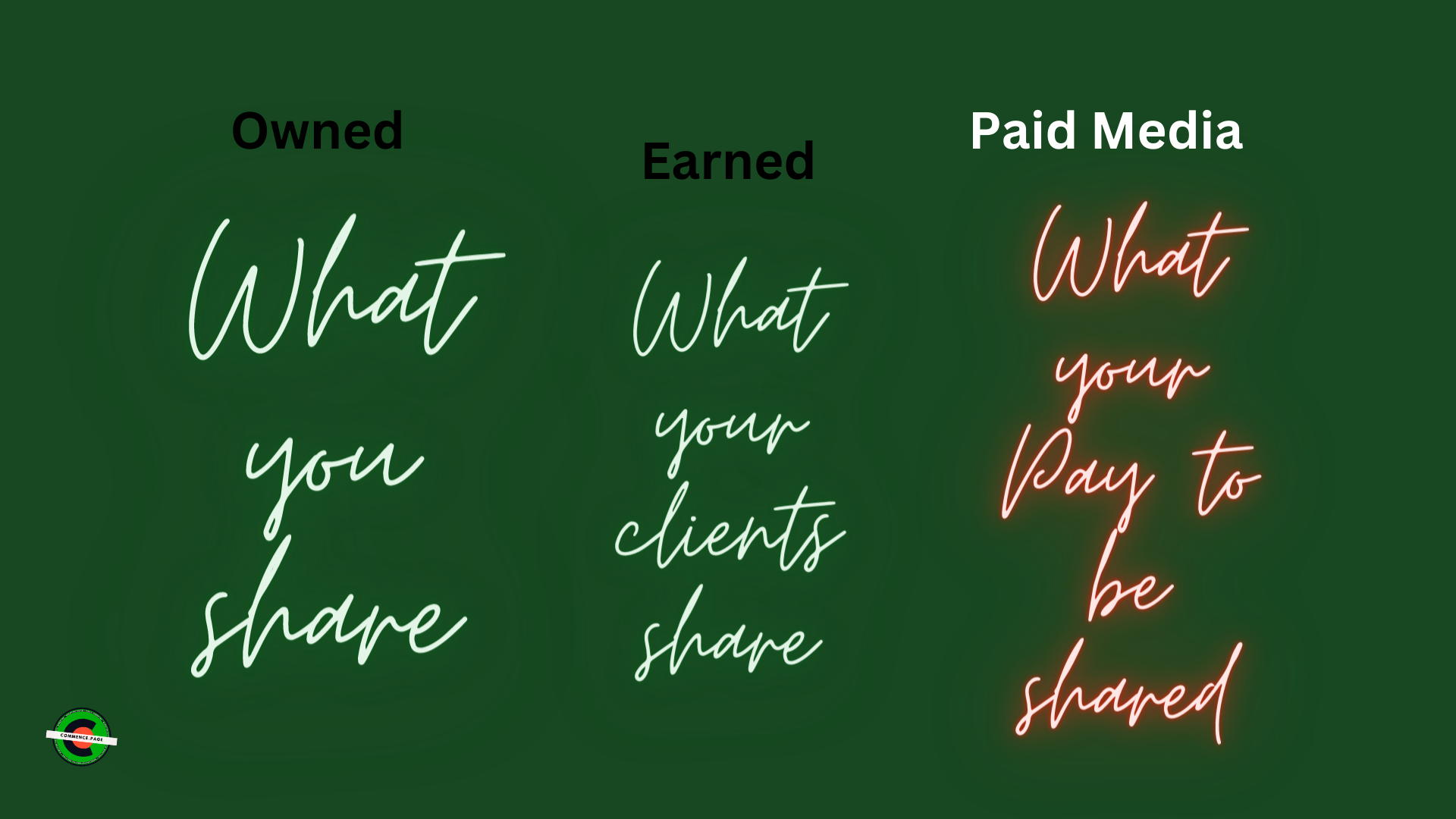As digital marketing agency we work with local Canadian small business, designing website, offering seo services but digital marketing is a whole new things boosted by social media and AI, having website for small business is not enough anymore, you need more social media marketing and email marketing, this guide will introduce you to digital marketing services.
Benefits of Marketing Digitally?
Marketing digitally has several benefits that can help your Canadian businesses to reach a wider audience, increase your brand visibility, and ultimately, grow the profits. One of the main advantages of digital Marketing is that it offers a more cost-effective approach than traditional marketing methods. With digital marketing, you can target ads to specific demographics, allowing you to achieve a higher return on investment ROI. Additionally, digital marketing provides businesses with the ability to track your campaigns in real-time, allowing you to adjust the strategies in response to customer behavior. Furthermore, digital marketing enables your businesses to engage with your customers more easily, making it easier to build long-term relationships with them. Overall, marketing digital provides businesses with a wealth of benefits that can help them to succeed in today's competitive local marketplace.
What is Digital Marketing for Small business?
Digital marketing for Small Canadian Businesses refers to the use of various digital channels such as social media platforms, email marketing, search engine optimization, content marketing, and paid advertising to reach and engage with potential customers.
In today's world, digital marketing has become an essential tool for all small businesses to maintain their online presence and attract new customers. Unlike traditional marketing techniques, digital marketing allows small businesses to reach a wider audience at a lower cost.
It allows you to target your audience precisely and measure the effectiveness of your marketing campaigns, which helps you make informed decisions to optimize your marketing strategies. With the increasing trend of online activities, it's crucial for your small businesses to adopt digital marketing to remain competitive in the market.
What does is mean to have Digital Marketing strategy?
A strategy is a plan that outlines how a small or local business will promote its products and services online. This strategy helps identify and reach the target audience, establish online platforms presence, create engaging campaigns and maximize ROI. The benefit of planning a strategy is that it enables a small business to streamline its marketing efforts, which saves time and money. The Marketing strategy includes the specific online approaches that a business can use to market its products and services such as organic search engine optimization (SEO), paid search engine marketing (SEM) / PPC ads, email marketing, Social media marketing, , and content marketing. By having a strategy, a small or local business can be sure that it is reaching its target audience in the most effective way using the digital channels available. Overall, crafting a Digital Marketing plan can be essential for the success of any small or local business operating in today's digital era.

How to Create a Strategy for small business marketing?
Creating a strategy for a local business can be a daunting task due to the challenges that come with it. To begin the process, it is essential to identify the goals of the business and what they want to achieve through their online presence. This can be anything from increasing website traffic to generating leads or sales. Next, it is important to create a persona of the ideal customer or target audience. This information can be used to tailor the messaging and advertising to better reach potential customers. Once goals and personas are established, it is necessary to choose the appropriate digital channels such as social media, email marketing, or search engine optimization that will be used to reach and engage with the target audience. In general, well planning can contribute to the success of a local business in the highly competitive digital world.
Create your customer profiles. aka your buyer personas.
Determine your objectives and the necessary online marketing instruments.
. Assess your current online platforms, resources and digital channels
Conduct an assessment and strategize your owned media advertising initiatives.
Determine your objectives and select the digital promotional tools required to achieve them.
Monitor and report.
1- Buyer personas.
To craft an effective marketing plan, whether in the digital sphere or otherwise, it is imperative that you have a clear understanding of your target audience. Successful digital marketing strategies are centred around well-defined buyer personas, which should be your initial focus during the planning phase.
Your ideal customers, known as buyer personas, can be developed through research, surveys, and interviews of your target audience. It's crucial to gather authentic data to avoid misleading assumptions about your audience that can derail your marketing strategy. To build a well-rounded persona, you should engage with a mix of customers, prospects, and outside contacts resembling your target audience. The specific information you need for your buyer personas will largely depend on your business model, such as whether you are B2B or B2C, or if you offer a high or low-cost product. However, the following suggestions can serve as starting points that can be customized to suit your enterprise's requirements.

Buyer Persona examples
Quantitative and Demographic Information
Location: Employ web analytics technology for a hassle-free way to determine the origin of your website's visitors.
Age: The significance of this data varies depending on the nature of your company. However, if your business requires it, the most effective way to gather this information is to analyze trends within your current leads and contacts database.
Income: Obtaining confidential data like personal income through persona research interviews is more advisable as individuals may feel hesitant to disclose such information via online questionnaires.
Job Title: As for B2B enterprises, job title is a parameter that can be roughly inferred based on their current customer pool.
Qualitative and Psychographic Information
Goals: Your buyer persona's goals can be revealed by identifying the problem your product or service addresses. To validate your assumptions, it may be helpful to seek input from actual customers as well as internal sales and customer service representatives.
Challenges: Converse with clients, sales representatives, and customer service agents, and all other staff members who interact with the customers to comprehend the shared difficulties experienced by your target audience.
Hobbies/Interests: Inquire with your clients and individuals who fit the profile of your intended audience about their pastimes and passions. If you are a fashion company, it's beneficial to determine if significant portions of your audience share a fascination with physical fitness and health in order to shape upcoming content and collaborations.
Priorities: Engage in conversations with both clients and potential customers to determine what matters most to them concerning your business. Consider this scenario: if you run a B2B software firm, discovering that your target audience prioritizes quality customer service rather than a low price point is highly advantageous information.
Through incorporating all of these particulars, you will have the capability to establish buyer personas that are precise and extremely advantageous to your enterprise.
2- Identify your goals and the digital marketing tools you'll need.
Your marketing objectives must always align with the core objectives of your business. As an instance, if your company intends to boost its online earnings by 15%, your marketing department could set a goal of generating 30% more website leads compared to the previous year to support the overall success.
No matter what your primary objective is with regards to digital marketing, it's essential to track and evaluate the effectiveness of your strategy with appropriate digital marketing instruments.
These tools can provide insights into metrics such as website traffic, social media engagement, email open rates, and conversion rates. By monitoring these metrics regularly, you can identify areas for improvement in your marketing strategy and make necessary adjustments to achieve your desired outcomes.
For instance, if you notice low website traffic, you may need to ramp up your SEO efforts or invest in paid advertising. Similarly, if you find that your social media posts aren't getting enough engagement, you might need to vary your content or increase your posting frequency.
Some common digital marketing instruments include Google Analytics for website analytics, Hootsuite for social media management, Mailchimp for email marketing, and A/B testing tools for testing different versions of your website or ads.
In conclusion, tracking and evaluating the effectiveness of your digital marketing efforts is crucial to ensure that you are making the most of your resources and achieving your desired outcomes. By leveraging appropriate digital marketing instruments, you can gain valuable insights that will help you optimize your strategy and achieve greater success.
3- Evaluate your existing digital channels and assets.
Prior to deciding which digital marketing channels and assets to include in your strategy, it's beneficial to take a step back and evaluate the broader context. This approach will help you avoid getting bogged down or bewildered.
Collect all of your belongings and organize each vehicle or resource into a spreadsheet to gain a comprehensive understanding of your current owned, earned, and paid media.
Owned, Earned, Paid Media Framework

For optimal results, employ the owned, earned, and paid media model to classify the digital platforms, properties, or outlets you currently utilize and determine which ones align well with your approach.
Owned Media
The term pertains to the electronic properties that belong to your brand or organization, such as your website, social media accounts, blog posts, or graphics. These are called owned channels as your company supervises them entirely. There may also be some off-site content you possess that is not available on your website, like a blog featured on Medium.
Earned Media
Earned media denotes the publicity that is gained through marketing techniques relying on word-of-mouth. This encompasses content published on external sites such as guest blog posts, public relations endeavors, and the quality of customer service delivered. Through these endeavors, the recognition acquired is referred to as earned media.
One may attain earned media by securing positive write-ups and evaluations from media outlets, as well as by obtaining content shares across social media platforms through people's personal networks.
Paid Media
Paid media encompasses any platform or outlet that requires financial investment to capture the attention of your intended target audience. This can include various forms of promoted content such as Google AdWords, sponsored social media posts, native advertising (like sponsored content posted on other websites), or any other avenue where you must pay for greater visibility.
Now that you have a better understanding of this concept, let's explore a hypothetical scenario. Imagine you have a piece of owned content hosted on a landing page of your website, designed specifically to generate leads. Instead of relying solely on owned, earned, or paid media, you intend to implement various components of the framework to maximize your results.
In order to increase the number of potential customers from the content, it is important to make sure that it can be easily shared on social media platforms so that your audience can distribute it. This will ultimately lead to an increase in traffic to your landing page, which is the earned media element.
To enhance the visibility of your content, you may choose to promote it on your Facebook page and pay for targeted advertising.
All three components of the framework can work together, but it is not essential for success. For example, if your owned and earned media are already successful, there may be no need to invest in paid. Therefore, evaluate the most effective solution to achieve your goal and integrate the channels that best suit your business into your marketing strategy.
Once you are aware of the current strategies being used, you can decide which ones to keep and which ones to remove.
May appear daunting to execute all but we are here to help small businesses with a full-service digital marketing.
How marketing agencies for small businesses can boost your profit ?
Digital marketing agencies for small businesses can be a game changer for profitability. In today's world, where the internet has become the primary source for information, traditional marketing techniques are seen as less effective. We help your businesses to be more visible online by creating an online presence through social media, SEO, content marketing, and email marketing.
These tactics help to increase your brand awareness, reach a wider audience more customers, and build and drive traffic to your website websites. By outsourcing your digital marketing needs, you can reduce the overall costs, as you do not have to hire an in-house marketing team, thereby increasing your profits. We are well equipped with the latest tools and techniques to help your small business to reach more customers.
